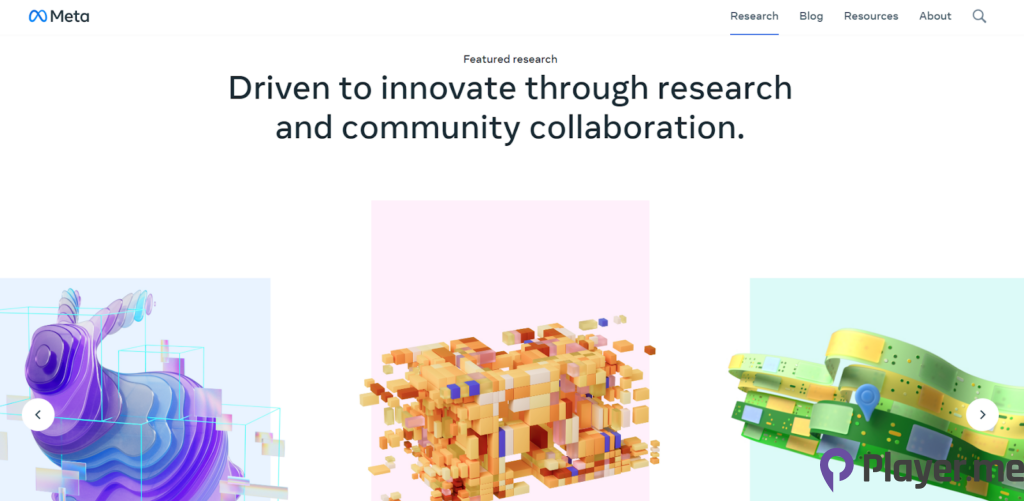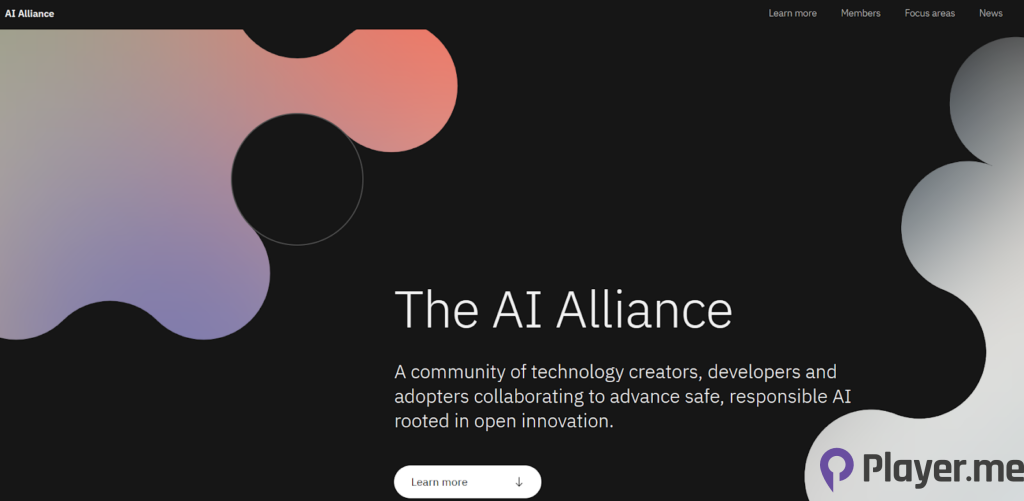In a strategic move, Meta is stepping into the forefront of Artificial Intelligence (AI) research with its Fundamental AI Research (FAIR) team. The company, led by Mark Zuckerberg, has set its sights on developing Artificial General Intelligence (AGI), a concept often described as human-level AI.
Meta’s Vision for AGI
Zuckerberg, in a recent Instagram Reel announcement, provided insights into Meta’s long-term vision. The aim is not just to create advanced AI systems but to delve into the realm of AGI, where machines exhibit intelligence comparable to or exceeding human capabilities.
The journey towards AGI is a gradual process for Meta, and Zuckerberg doesn’t define it with a specific threshold or a singular moment. Instead, he envisions AGI evolving over time, emphasising the breadth of intelligence, including reasoning and intuition.
FAIR’s Role in AGI Development
At the core of Meta’s AGI initiative is its AI research group, FAIR. This team, dedicated to fundamental AI research, is undergoing a strategic shift, being moved closer to the unit responsible for developing generative AI products across Meta’s various applications. The goal is to facilitate breakthroughs that can directly impact the billions of users within Meta’s ecosystem.

While the industry is witnessing intense competition for AI talent, Meta is taking a proactive approach with FAIR. The company is not only investing in attracting top-tier researchers but also amassing significant computing power. By the end of the year, Meta plans to own more than 340,000 of Nvidia’s H100 GPUs, a critical component in building generative AI.
Meta’s Stance on Open Source AGI
What sets Meta apart in the AGI race is its commitment to openness. Zuckerberg emphasises the importance of open-sourcing AGI responsibly when funding FAIR. This approach, according to him, addresses concerns related to unequal access to opportunities and value. In a landscape where some companies are moving away from open-source models, Meta’s stand aligns with a vision that fosters collaboration and widespread benefit.
Zuckerberg draws a subtle contrast with other approaches, particularly mentioning the trend of companies starting off as open but later deciding to keep valuable AI developments private in FAIR. He suggests that Meta’s strategy of openness serves not only safety and responsibility concerns but also aligns with a broader vision of equal access.
AGI in the Context of Meta’s Larger Strategy
Despite the emphasis on AGI, Zuckerberg clarifies that this move does not signify a pivot for Meta. FAIR’s recent focus on the metaverse and Augmented Reality (AR) through products like the Ray-Ban Meta smart glasses remain intact. Zuckerberg envisions a future where AI and humans interact seamlessly, emphasising that AI will become an integral part of daily life, especially through smart glasses.
Meta’s commitment to the metaverse is evident in ongoing initiatives, such as the development of Llama 3, the next-generation AI language model. With capabilities extending to code generation and advanced reasoning in FAIR, Llama 3 reflects Meta’s ambition to lead in AI model development.
Also Read: Elevating Australia’s 2024 Outlook with the Top 10 Anticipated Tech Trends
Industry Dynamics and Meta’s Competitive Edge
The AGI announcement comes at a time when major players in the tech industry, such as OpenAI and Google, are also pursuing AGI. Meta’s aggressive investment in both AI talent and computing power positions the company as a formidable competitor in the evolving landscape of AI research.

Zuckerberg acknowledges the fierce competition for AI talent, describing it as more intense than ever. Meta’s ability to attract top researchers and its substantial investment in AI infrastructure, including a massive number of NVIDIA H100 GPUs, signal the company’s determination to stay at the forefront of AI advancements.
Meta FAIR’s Integration and Impact
The integration of FAIR with the team working on generative AI products clearly is a strategic move to ensure that breakthroughs in AI research directly translate into improvements for Meta’s vast user base. By bridging the gap between fundamental research and practical applications, Meta aims to push the boundaries of what AI can achieve within its ecosystem.
Yann LeCun, Meta’s Chief AI Scientist, expresses optimism about the impact of these changes, suggesting that the integration will accelerate progress in AI. FAIR is positioned as a sister organisation to GenAI, the product-focused division, creating a synergy that LeCun believes is essential for advancing AI research to the next level.
AGI and Open Source Alliance
Meta’s advocacy for open-source AI is not an isolated effort. The company, alongside IBM, recently launched the AI Alliance, a group promoting their vision of open-source AI. This move places Meta in opposition to some industry players advocating for more closed approaches to AI development.

The alliance’s objective aligns with Zuckerberg’s belief that openness addresses concerns related to the concentration of valuable AI technology. By releasing AI models openly, Meta aims to contribute to a collaborative environment where advancements are shared for the benefit of a broader audience.
Our Final Say: Meta Is Stepping Up the AI Race
At the moment, no one really knows what a perfect AGI will look like when it’s ready in the coming years. For a very long time, a utopian vision of having a human-like AI has been envisioned in several science fiction content, such as Iron Man’s Jarvis. With the recent success of AI for different purposes, possibilities of something like this have become brighter than ever before.
The caveat is the lack of trust on the Big Tech to drive such innovations. Open source seems like a noble concept in a more democratic version of the internet but can the likes of Facebook and others be really trusted with your personal data? We’ve already seen them leveraging grey areas in regulations to milk user data around the world. Moreover, Big Tech has a monopoly on almost all aspects of consumer tech – hardware and software. With AGIs becoming concentrated to these firms, it may pretty much be old wine in a new bottle.
As far as Meta goes, it owns the world’s largest social networking platform Facebook, Instagram, and WhatsApp. The company always enjoys a massive user base and possesses the power to push mass adoption of anything new instantly. If done right, Zuckerberg may soon have another massive hit under his regime. But we’re not sure how this will pan out with all his metaverse pivots and subsequent products and services as they still remain niche and novelty for many so be sure to stay connected by following us on our website for first-hand updates on Meta’s FAIR story and the unfolding chapters of human-machine capabilities.
Author Profile
Latest entries
 GAMING2024.06.12Top 4 Female Tekken 8 Fighters to Obliterate Your Opponents in Style!
GAMING2024.06.12Top 4 Female Tekken 8 Fighters to Obliterate Your Opponents in Style! NEWS2024.03.18Elon Musk’s SpaceX Ventures into National Security to Empower Spy Satellite Network for U.S.
NEWS2024.03.18Elon Musk’s SpaceX Ventures into National Security to Empower Spy Satellite Network for U.S. GAMING2024.03.17PS Plus: 7 New Games for March and Beyond
GAMING2024.03.17PS Plus: 7 New Games for March and Beyond GAMING2024.03.17Last Epoch Necromancer Builds: All You Need To Know About It
GAMING2024.03.17Last Epoch Necromancer Builds: All You Need To Know About It





